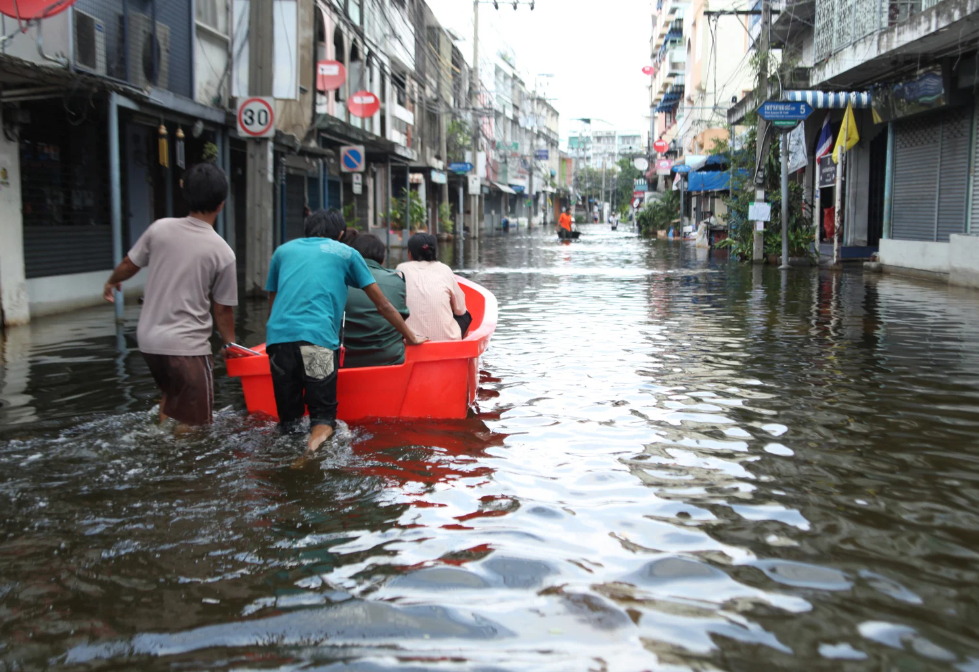
Seeking Climate Justice: Civil Society’s Crucial Role from Courtrooms to Communities
As oil and gas companies fail to phase out fossil fuel production to avoid deadly temperature limits, the scrutiny and fights led by CSOs and communities to hold the fossil fuel industry accountable keeps rising.
The climate movement is turning to courts to hold corporations and governments accountable for their role in causing the climate crisis. The number of cases filed each year has nearly tripled since the Paris Agreement in 2015. With courts becoming vital battlegrounds, civil society organizations (CSOs) play a key role, pushing legal cases forward and ensuring public engagement in the climate debate.
Whether demanding transparency and access to public information or challenging the approval and financing of fossil fuel projects, strategic litigation has emerged as one of the most powerful tools in this effort. However, plaintiffs face other obstacles outside the courtroom, from threats such as SLAPP suits, criminal or tax complaints, to legal frameworks skewed in favor of fossil fuels, revealing the entrenched power of industry interests.
A new report, Big Oil in Court: The latest trends in climate litigation against fossil fuel companies, by Oil Change International and Zero Carbon Analytics, found that the use of courts and legal mechanisms to address climate change has grown significantly (check out some of our media coverage in the Financial Times, the Guardian, and the New York Times).
Such increase comes as oil and gas companies fail to reduce fossil fuel production and limit temperature rise. The scrutiny and fights led by CSOs and communities to hold the fossil fuel industry accountable keeps rising despite the hurdles outside courtrooms.
Storytelling as a Tool for Climate Justice
The surge in climate litigation also highlights the growing influence of civil society organizations. According to the LSE Snapshot Report 2024, a significant majority of cases have been initiated by CSOs and individuals.
One of the key contributions of civil society in these cases is storytelling. While scientific reports and data drive much of the climate discourse, facts can sometimes feel disconnected from everyday lives. CSOs play an essential role in humanizing these issues, bringing to light the personal stories of communities who suffer the brunt of climate impacts. These stories not only empower plaintiffs but also provide crucial insight for courts, helping to connect the human rights impacts to legal claims.
In 2023 alone, over 230 new climate cases were filed globally, with at least six specifically targeting financial institutions backing projects that worsen the climate crisis. These cases highlight the dual need for legal accountability and community storytelling, with the personal experiences of affected individuals giving a human face to the often overwhelming statistics.
High-Profile Cases: Holding Financial Institutions Accountable
The climate movement appears to be driving change within financial institutions funding fossil fuels, as recent cases have compelled Export Credit Agencies (ECAs) to be more transparent about the destructive impacts of projects they finance.
In the case Jubilee v. EFA and NAIF, an Australian NGO challenged the reporting practices of two of Australia’s public financing institutions – major providers of taxpayer-funded finance for fossil fuels. The plaintiffs sought disclosure of the full environmental impacts of their financing activities, arguing that such transparency is crucial for evaluating the true environmental cost of fossil fuel projects. In June 2024, Jubilee elected to discontinue proceedings against Export Finance Australia (EFA) as it considers EFA’s latest annual report demonstrated overall compliance with legal obligations to disclose environmental impacts, including those related to its financing activities. While the claim was resolved, showcasing the power of litigation in enforcing compliance, the case against the Northern Australia Infrastructure Facility (NAIF) remains ongoing, continuing the fight for public access to basic information about the climate and biodiversity impacts of taxpayer-funded loans and investments.
Similar disclosure claims have succeeded in the past, sometimes resulting in negotiated settlements, demonstrating the complexities of climate litigation, yet allowing contentious projects to proceed. In the case Friends of the Earth, Inc. v. Spinelli an agreement was reached resulting in the dismissal of a legal challenge against OPIC and Ex-Im Bank, both independent government entities providing monetary assistance to projects without assessing the CO2 emissions as mandated by National Environmental Policy (NEPA) and the Administrative Procedure Act. Financing authorities offered revision of their policies regarding the environment in consultation with representatives of the plaintiffs.
Despite the defeat in the Federal Court over Santos’ Barossa gas project, the court’s recommendation for improvements demonstrates that legal challenges can shape project outcomes. Backed by both the Northern Territory and federal governments, the Barossa gas project has been touted for its economic benefits, highlighting a recurring theme in climate litigation: the clash between environmental concerns and climate justice and the wrongly perceived economic advantages of fossil fuel projects, despite strong scientific evidence.
However, corporations like Santos are increasingly pushing back, even threatening to seek costs against third-party groups that offer solidarity support to public interest litigants. Such actions are intended to stifle public participation in climate litigation, creating a chilling effect that discourages future challenges. The use of counter-lawsuits and settlement agreements in climate cases represents only the surface of much deeper systemic issues.
While the courts offer an avenue for challenging both corporations and governments over climate concerns, legal frameworks often favor the fossil fuel industry and its enablers and fail to adequately protect vulnerable communities, such is the case of Australian National Nature Law.
Understanding how these projects continue to advance is critical to the future of climate litigation. The fight to protect the environment is not just about winning cases but about addressing the larger dynamics between corporations, governments, and the communities they impact.
Although CSOs face immense challenges in this space, from legal structures biased towards fossil fuel expansion to retaliatory threats from corporate actors, movement partners continue to fight back and show they can overcome these hurdles and use litigation successfully to fight fossil fuel finance and fossil fuel expansion.
